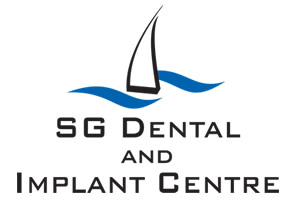Wobbly Tooth? Here’s What To Do….
Even if your tooth looks healthy, if it is wobbling, then something is wrong.
The only teeth that we have in our lifetime which should wobble, are our milk teeth when they are almost ready to come out. This is entirely natural, but once they have been replaced by our adult teeth, this should not happen again. Indeed if it does, there is something wrong that will require professional dental attention.
There are a number of possible causes of a wobbly tooth, each of which might require different treatment.
A blow to the tooth
If your tooth is wobbling following a blow to it, such as from a football, or even a fall, it is possible that you may have damaged the tooth and possibly also the jaw bone holding it in place. Depending on the extent of any damage to the bone, this may rectify itself within a few weeks as the bone regenerates. You should ALWAYS have the tooth checked though and never presume that this is what will happen, It will depend on a number of factors and the dentist at Mike Allen’s Dental Practice will be able to advise you about this in more detail, following an examination.
Even where the tooth will eventually recover on its own, it may still need to be treated for any breakages or root canal trauma.
Gradual wobbly teeth
If your teeth have become more wobbly over time, without any such trauma, then there is a chance that you are suffering from periodontitis. This is an advanced form of gum disease which damages the bone holding the tooth in place. This is largely preventable with good cleaning and regular scale and polishes by the hygienist at our Burton practice.
If the problem already exists though, the first step is to have your gum health checked. If it should prove to be periodontitis, this may require a ‘deep clean’, potentially performed by a specialist dentist known as a Periodontist. This is an invasive procedure which involves a thorough clean, not only of the teeth and gum line, but also down to the roots of the tooth and often the bone. A local anaesthetic will be given before the procedure starts to minimise any discomfort. It should be noted that, although this is the most effective treatment available, it does not guarantee success.
If all else fails
If the tooth has become too damaged, or gum disease is so advanced that the tooth can’t be saved, it may need to be extracted. Any gum disease would still need to be treated to prevent further deterioration of the bone before any replacement for the missing tooth is decided upon. Whilst some people will opt for dentures, dental implants also offer an excellent way of replacing lost teeth.
If you have a wobbly tooth, or wish to see one of our Burton dentists about another matter, please call Mike Allen’s Dental Practice on 01283 845345.
